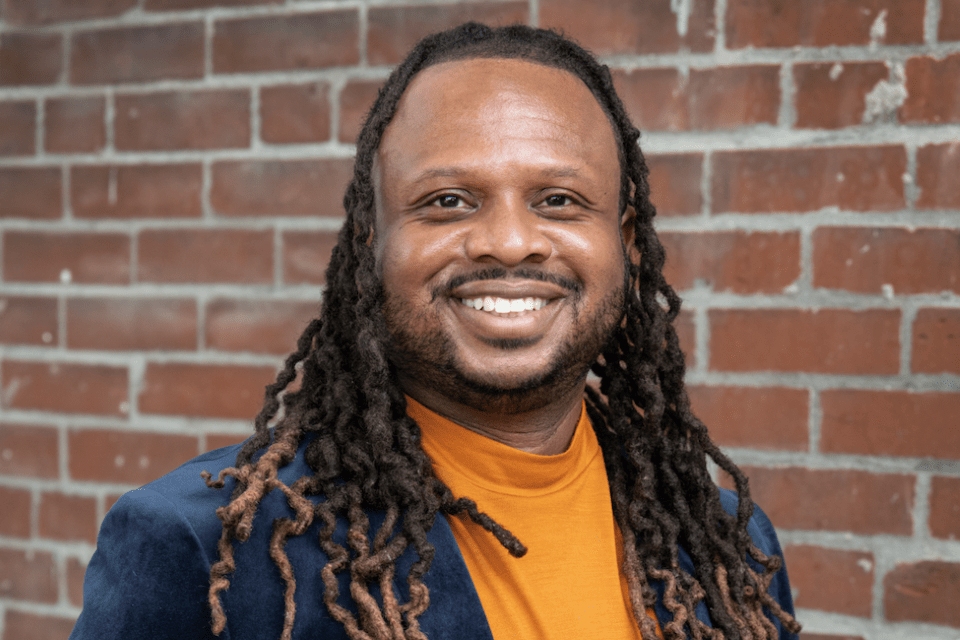SLU CPHSJ Professor Named a Rubenstein Fellow at the Brookings Institution
Maggie Rotermund
Senior Media Relations Specialist
maggie.rotermund@slu.edu
314-977-8018
Reserved for members of the media.
Keon L. Gilbert, DrPH, associate professor of behavioral science and health education at Saint Louis University’s College for Public Health and Social Justice and one of the founding co-directors of the Institute for Healing Justice and Equity at SLU, has been appointed to the third class of David M. Rubenstein Fellows at the Brookings Institution.
The two-year fellowship will begin this month. Gilbert, along with nine other outstanding early- and mid-career scholars, will be placed across five research programs at the Brookings Institution. He will be in the Governance Studies program.
The Rubenstein Fellowship program, originally announced in 2017, is supported by a gift from Brookings Trustee David M. Rubenstein, co-founder and co-chairman of The Carlyle Group, and is part of Brookings’ commitment to advancing diversity in its scholarly community.
Gilbert said he was excited by the opportunity.
“I am always excited to try new things and find additional collaborators to advance the work we are doing looking at the social and structural determinants of health disparities at the national, state, and local level,” he said.
Gilbert applied for the program last fall.
“I think I was attractive to them with my background in public health and my focus on working with community-based organizations,” Gilbert said. “Part of what I want to continue to build on is my community-based research with Black boys and Black men which focuses on improving health outcomes and developing strategies to increase social mobility.”
Gilbert called the Rubenstein fellowship an opportunity for Brookings to think about how they build a diverse pool of talented fellows.
“This advances the work that they are already doing,” he said. “I hope that by working with a high-profile institution which receives a lot of attention, I may be able to highlight some of the work we are doing here in St. Louis.”
During the fellowship, Gilbert will continue to work on several of his current projects at SLU.
“I can’t walk away from the work. I hope to enhance what I’m doing while at Brookings,” he said.
Gilbert said he is particularly interested in how improving policy can improve public health. His focus will be on existing health issues, racial and health equity and how policy can protect vulnerable populations.
“The pandemic has shed a light on health equity issues, as well as on the field of public health,” Gilbert said. “In many ways, it has called us to the carpet – look at how many things we haven’t fixed. Look at how we operate and what systems and structures need to be enhanced or replaced. We need to think not about equal access in public health, but equitable access.”
“We can do more,” he added. “I hope that we are heading that way.”
Institute for Healing Justice and Equity
A multidisciplinary group of faculty formed the Institute for Healing Justice and Equity at Saint Louis University, an initiative that has the potential to transform SLU into the epicenter of equitable community building and knowledge curation related to healing from social injustice, trauma, and oppression.
College for Public Health and Social Justice
The Saint Louis University College for Public Health and Social Justice is the only academic unit of its kind, studying social, environmental and physical influences that together determine the health and well-being of people and communities. It also is the only accredited school or college of public health among nearly 250 Catholic institutions of higher education in the United States.
Guided by a mission of social justice and focus on finding innovative and collaborative solutions for complex health problems, the College offers nationally recognized programs in public health, social work, health administration, applied behavior analysis, and criminology and criminal justice.


















